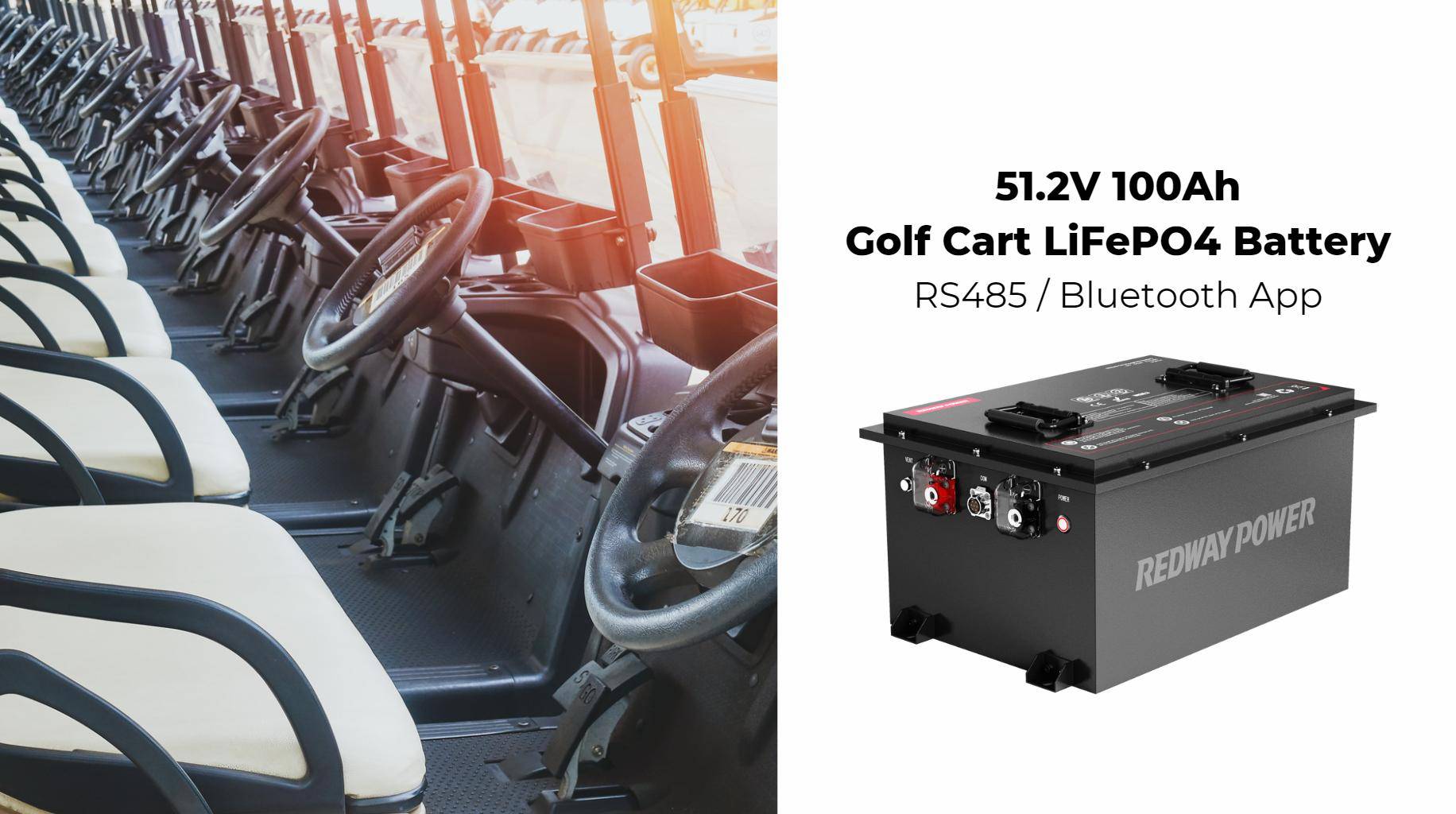- Forklift Lithium Battery
-
48V
- 48V 210Ah
- 48V 300Ah
- 48V 420Ah (949 x 349 x 569 mm)
- 48V 420Ah (950 x 421 x 450 mm)
- 48V 456Ah
- 48V 460Ah (830 x 630 x 590 mm)
- 48V 460Ah (950 x 421 x 450 mm)
- 48V 460Ah (800 x 630 x 600 mm)
- 48V 460Ah (820 x 660 x 470 mm)
- 48V 500Ah
- 48V 560Ah (810 x 630 x 600 mm)
- 48V 560Ah (950 x 592 x 450 mm)
- 48V 600Ah
- 48V 630Ah
-
48V
- Lithium Golf Cart Battery
- 12V Lithium Battery
12V 150Ah Lithium RV Battery
Bluetooth App | BCI Group 31
LiFePO4 Lithium
Discharge Temperature -20°C ~ 65°C
Fast Charger 14.6V 50A
Solar MPPT Charging - 24V Lithium Battery
- 36V Lithium Battery
- 48V Lithium Battery
-
48V LiFePO4 Battery
- 48V 50Ah
- 48V 50Ah (for Golf Carts)
- 48V 60Ah (8D)
- 48V 100Ah (8D)
- 48V 100Ah
- 48V 100Ah (Discharge 100A for Golf Carts)
- 48V 100Ah (Discharge 150A for Golf Carts)
- 48V 100Ah (Discharge 200A for Golf Carts)
- 48V 150Ah (for Golf Carts)
- 48V 160Ah (Discharge 100A for Golf Carts)
- 48V 160Ah (Discharge 160A for Golf Carts)
-
48V LiFePO4 Battery
- 60V Lithium Battery
-
60V LiFePO4 Battery
- 60V 20Ah
- 60V 30Ah
- 60V 50Ah
- 60V 50Ah (Small Size / Side Terminal)
- 60V 100Ah (for Electric Motocycle, Electric Scooter, LSV, AGV)
- 60V 100Ah (for Forklift, AGV, Electric Scooter, Sweeper)
- 60V 150Ah (E-Motocycle / E-Scooter / E-Tricycle / Tour LSV)
- 60V 200Ah (for Forklift, AGV, Electric Scooter, Sweeper)
-
60V LiFePO4 Battery
- 72V~96V Lithium Battery
- Rack-mounted Lithium Battery
- E-Bike Battery
- All-in-One Home-ESS
- Wall-mount Battery ESS
-
Home-ESS Lithium Battery PowerWall
- 24V 100Ah 2.4kWh PW24100-S PowerWall
- 48V 50Ah 2.4kWh PW4850-S PowerWall
- 48V 50Ah 2.56kWh PW5150-S PowerWall
- 48V 100Ah 5.12kWh PW51100-F PowerWall (IP65)
- 48V 100Ah 5.12kWh PW51100-S PowerWall
- 48V 100Ah 5.12kWh PW51100-H PowerWall
- 48V 200Ah 10kWh PW51200-H PowerWall
- 48V 300Ah 15kWh PW51300-H PowerWall
PowerWall 51.2V 100Ah LiFePO4 Lithium Battery
Highly popular in Asia and Eastern Europe.
CE Certification | Home-ESS -
Home-ESS Lithium Battery PowerWall
- Portable Power Stations
Can I Replace My Lead-Acid Batteries with LiFePO4 Batteries?

The transition from lead-acid batteries to LiFePO4 (lithium iron phosphate) batteries is becoming increasingly popular across various applications due to the numerous advantages offered by LiFePO4 technology. This article explores whether replacing lead-acid batteries with LiFePO4 batteries is a viable option and highlights the key factors to consider for a successful switch.
Understanding LiFePO4 Batteries
LiFePO4 batteries represent a significant advancement over traditional lead-acid batteries. Their nominal voltage of 3.2V per cell compared to 2.1V for lead-acid means that fewer cells are required to achieve the same pack voltage, making them a more efficient choice. Here’s an in-depth look at what makes LiFePO4 batteries a compelling alternative:
Benefits of LiFePO4 Batteries
1. Extended Lifespan
LiFePO4 batteries are renowned for their longer lifespan. Typically, these batteries last between 10-15 years, while lead-acid batteries generally have a lifespan of just 3-5 years. This extended life reduces the frequency of replacements and overall long-term costs.
2. Superior Energy Density
With a higher energy density, LiFePO4 batteries are both lighter and more compact compared to their lead-acid counterparts. This attribute is particularly beneficial for applications where space and weight are critical factors.
3. Faster Charging Capabilities
LiFePO4 batteries offer rapid charging times. They can reach 50% charge in approximately 30 minutes and achieve a full charge in about 1 hour. Additionally, their charging efficiency exceeds 90%, ensuring more effective use of energy.
4. Maintenance-Free Operation
One of the significant advantages of LiFePO4 batteries is their maintenance-free nature. Unlike lead-acid batteries, LiFePO4 batteries do not require watering or equalization charging, simplifying maintenance and reducing ongoing labor and costs.
5. Enhanced Safety
LiFePO4 batteries use a safer chemistry compared to other lithium-ion batteries. They are more stable and significantly less prone to thermal runaway, making them a safer choice for various applications.
Considerations for Switching
While LiFePO4 batteries offer numerous advantages, several factors must be considered to ensure a smooth transition from lead-acid batteries:
1. Compatibility with Charging Systems
Before making the switch, verify that your existing charge controller and charger are compatible with LiFePO4 batteries. Although many lead-acid chargers can still charge LiFePO4 batteries to around 85-95%, it’s crucial to confirm that the charger supports the specific voltage and charging profile of LiFePO4 technology.
2. Battery Management System (BMS)
Invest in a LiFePO4 battery equipped with a robust Battery Management System (BMS). The BMS is essential for preventing overcharging, over-discharging, and ensuring cell balancing. A good BMS enhances the performance and longevity of the battery.
3. Temperature Considerations
LiFePO4 batteries should not be charged below freezing temperatures. If you anticipate cold conditions, consider using a heated enclosure to maintain optimal charging and performance.
4. Physical Dimensions
Although LiFePO4 batteries are generally more compact, verify that their physical dimensions align with your existing battery compartment. This ensures a proper fit and avoids any modification needs.
Conclusion
Replacing lead-acid batteries with LiFePO4 batteries can provide substantial benefits, including a longer lifespan, higher energy density, faster charging, and reduced maintenance. However, it is crucial to ensure compatibility with existing systems, invest in a quality BMS, and address temperature considerations to fully leverage these advantages.
For those looking to transition to LiFePO4 technology, Redway Power offers extensive experience in providing 36V and 48V lithium golf cart batteries. Our customized solutions are designed to meet your specific needs efficiently. Contact us today for a quick quote and experience the superior performance and reliability of LiFePO4 batteries.













